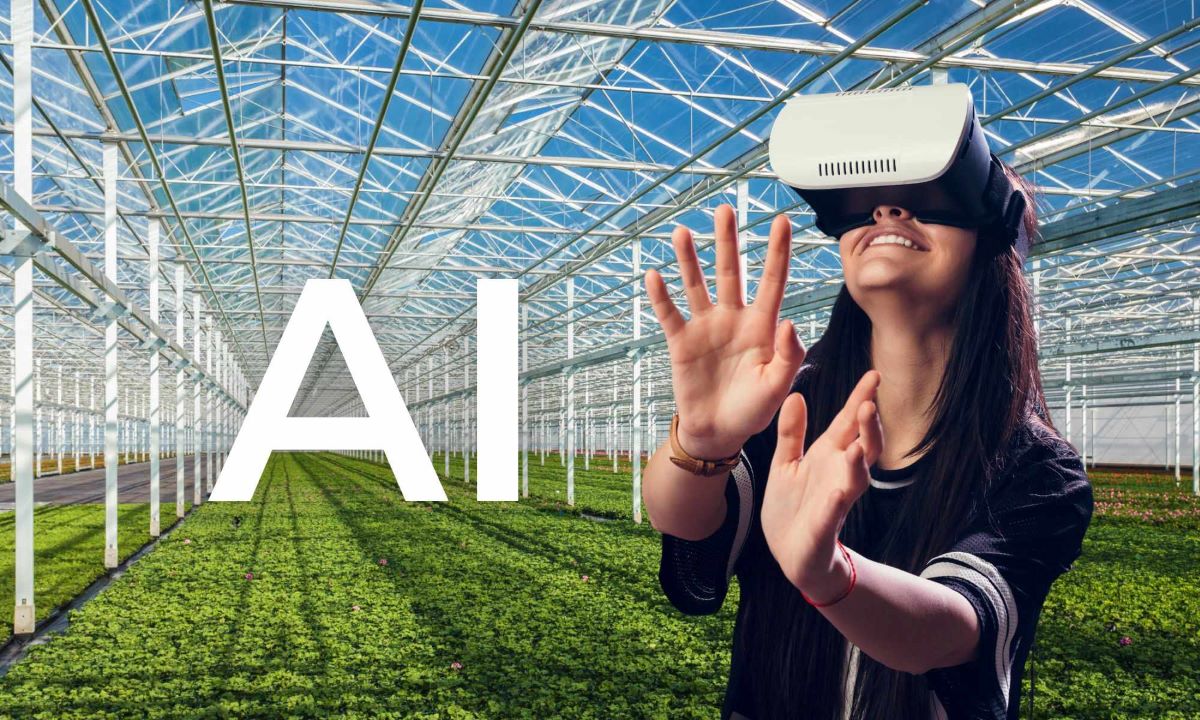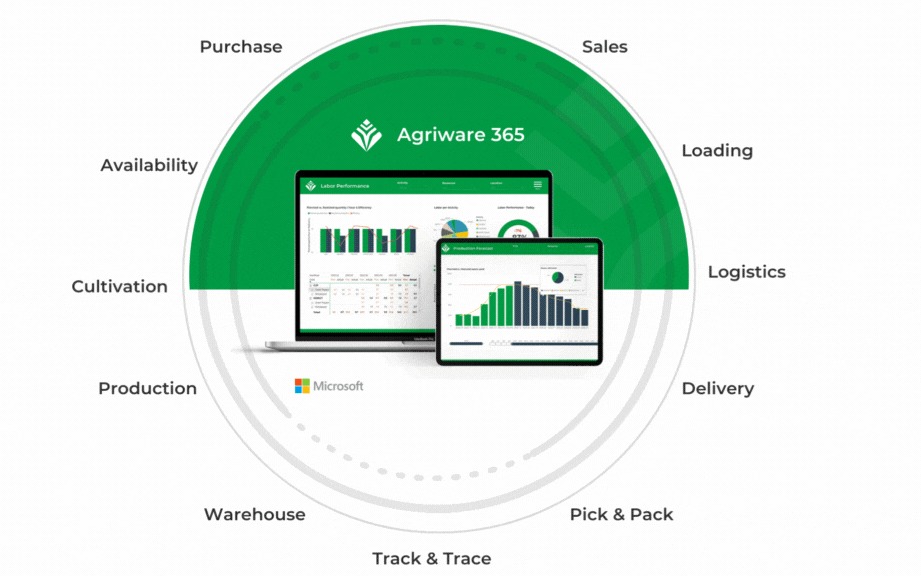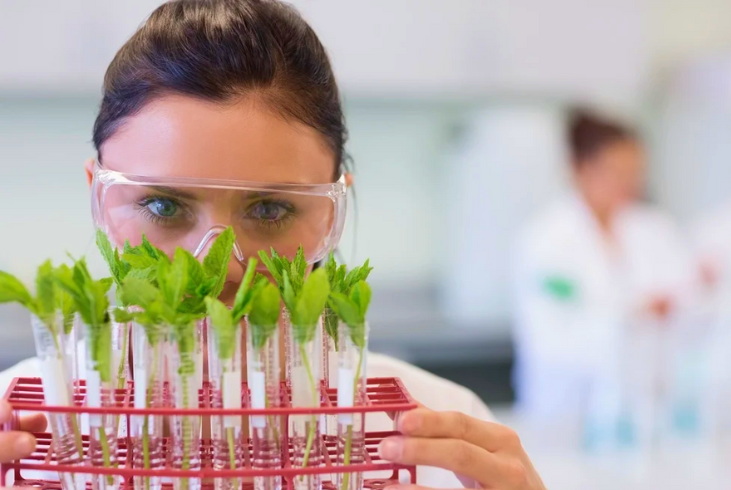A new era | Opportunities of Generative AI in Horticulture
.png?width=72&name=Cor%20Verdouw%2c%20Innovation%20manager%20Mprise%20(1).png)

2023 marked the breakthrough of generative artificial intelligence, or GenAI (see box below). It's truly astonishing how quickly ChatGTP became popular worldwide and the momentum it initiated. Whether you like it or not, we seem to be at the dawn of a new era where artificial intelligence is turning the way we work and live upside down.
This was also said over 25 years ago when the chess computer Deep Blue defeated world champion Kasparov. But now, it is accompanied by an explosion of practical applications with significant impact, including in horticulture.
Microsoft Frontrunner in Business Applications of GenAI
Experimenting with ChatGTP and other easily accessible tools, like those for generating photos, gave me an immense 'wow-feeling'. It’s amazing how recognizable and surprisingly useful the results are when you give them the right commands. But generative AI becomes truly interesting when integrated into your daily work, and Microsoft is leading the way here.
Over recent years, Microsoft has invested billions in collaboration with OpenAI, the company behind ChatGTP. With the introduction of Copilot, Microsoft has given generative AI a central role in its entire platform. Microsoft Copilot is a digital assistant that helps users with various tasks, from writing documents in Word to generating dashboards in PowerBI or developing Apps in Power Apps.
The different copilots are based on the Azure OpenAI service, offering various powerful language models, including ChatGTP. A crucial difference from the well-known public version of ChatGTP is that you can train your own instance with company-specific data. This data remains protected according to existing authorizations, and there are also extensive additional security options.
Step towards modernization
The potential of AI extends far beyond the stand-alone applications. Its most significant impact lies in the core operational areas of our organization. AI technology promises to elevate the efficiency and sophistication of key functions such as administration, inventory management, sales, finance, and production.
Innovation Hackathon Agriware
We are excited about the potential of generative AI for horticulture! That's why we organized a hackathon at Agriware to develop inspiring prototypes. These two challenges were centred:
- How can you develop new functionalities with concrete business value for our customers using generative AI? See these videos for inspiration: 365 Copilot, Dynamics Copilot, PowerBi Copilot!
- How can generative AI make our own work easier? For example: programming, testing, documenting, and support. See these videos for inspiration: GitHub Copilot, Power Apps Copilot en PowerAutomate Copilot!
The Agriware Innovation Hackaton was a fun day that yielded valuable ideas! And it was truly impressive that all teams managed to develop prototypes in such a short time, such as:
- AWAI (Agriware AI): Assistant for optimizing production planning based on Agriware data like sales forecasts, availability, and production preferences
- Sales Order Copilot: To assist with creating sales orders to be more productive.
- Agrifolk Assistant: An interactive chatbot for user assistance in Agriware 365, enhancing seamless usability
Leveraging Generative AI for Horticultural Operations
The hackathon demonstrated the potential of generative AI for Agriware. We expect it to have a huge impact on horticulture. The way of working is fundamentally changing.
Tools like Microsoft Copilot provide valuable insights swiftly from a user's specific context. And they make time- and knowledge-intensive tasks much more efficient, such as data entry, writing texts, developing reports, dashboards, and software.
It makes complex tasks like entering data, writing texts, creating reports, dashboards, and software much easier and faster.
How to begin?
To make the most of Copilots, it's crucial to prepare thoroughly. This includes organizing input data, training AI models tailored to your business, and ensuring proper security settings. Additionally, both the organization and its users should be prepared for the new way of working.
Lastly, generative AI does come with certain risks (refer to the detailed discussion below). While it is a powerful and beneficial tool, its use requires care and wisdom. Therefore, begin by exploring its potential, for instance, through pilot projects. Embrace the philosophy of 'thinking big, starting small, and scaling up rapidly' to effectively and safely harness its capabilities.

Interested? Contact us to discuss further opportunities for Tailored Business Management Software for Horticultural Companies.
About Mprise Agriware
Mprise Agriware provides a tailored, integrated Microsoft-based business management software solution for the horticulture industry. Combine finance, sales, inventory management, production, and all operations within a single, user-friendly application. Gain insights, drive business growth and prepare for what’s next.
How Does Generative AI WorkGenerative AI is a form of artificial intelligence capable of creating new content. This can include text, like in chatbots, as well as photos, audio, videos, software code, models, or fictional (test) data. Generative AI employs various methods, including Generative Adversarial Networks (GANs), where a neural network (the discriminator) assesses the results of another neural network (the generator) until it can no longer distinguish them from the training data. The Transformer method, used by tools like ChatGTP, has significantly accelerated the development of generative AI.
In recent years, so-called Foundation Models have been developed using these generative AI methods. These are AI models trained with vast and diverse data, making them broadly applicable. For text generation, these models are known as Large Language Models, examples being OpenAI's GPT-3.5 and Google's BERT/Gemini. It's possible to further train these generic Foundation Models for specific applications, for instance, with company data.
For user interaction, there are many different tools available, including various chatbots like ChatGTP and Google Bard, as well as other AI generators such as Midjourney, DALL·E, Stable Diffusion (images), GitHub Copilot, and OpenAI Codex (code). In these, you can use 'prompts’ to ask questions, give commands, and provide feedback. The formulation of these prompts is crucial for the outcome. Defining optimal formulations has even become a specialty: 'prompt engineering'.
Pitfalls of Using Generative AI
While generative AI is a promising new technology, caution is advised, especially in business applications. One of the primary downsides is the reliability and accuracy. Tools like ChatGTP can produce very convincing texts based on utter nonsense (hallucinations). Generative AI also makes it easy to create realistic fake photos and videos or mimic someone's voice, which cybercriminals can exploit. Therefore, blindly relying on generative AI is very risky. It's always necessary to verify whether the results are true.
Another risk concerns the infringement of intellectual property and the privacy of data used to train generative AI models. It's handy to create a summary of a confidential document or to correct errors in software source code, but how can you ensure that your competitors don't benefit from it?
Other ethical considerations include the potential for biases in training data, leading to discriminatory outcomes. Additionally, the training and use of generative AI models require a lot of energy, which is questionable from a sustainability perspective.
Hence, it's important not to uncritically embrace generative AI. Be aware of the risks and create the right conditions to manage them responsibly!








